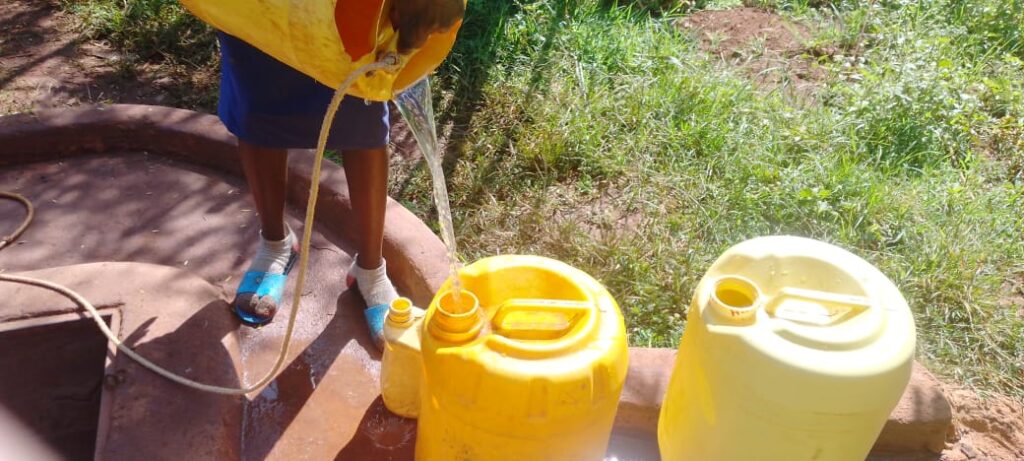Fifteen years ago, Mathews Chepkwony relied on a seasonal stream to support his vegetable farming in Chesamoo village, Bungoma County, at the foot of Mount Elgon.
The stream became unpredictable with time, sometimes drying up when he needed the water most. But five years ago, he drilled a borehole and has since resolved the issue of lack of water not only for his one-acre farm but also for domestic use.
With a hand pump, I can extract enough water for my crops, livestock, and home use
Mathews Chepkwony
“With a hand pump, I can extract enough water for my crops, livestock, and home use,” he says.
In Lokiriama village in the neighboring Trans Nzoia County, 48 year old Joseph Eluku has been using water from his borehole for domestic use and irrigation for the last 10 years. Before, his family depended on springs but with more and more people depending on the spring, it became unpredictable to get enough water.

Unexploited ground water resource
According to Dr. John Rao Nyaoro, a Water Law and Policy expert and former Executive Director of the Nile Basin Initiative, NBI (2014 – 2016), groundwater is the solution to water shortages, as it is resistant to climate change compared to surface water, which is lost through evaporation and other impacts of weather variations,” he says.
Dr Nyaoro adds there is a need to strengthen the regulations, especially a common transboundary policy for shared resources like the Mount Elgon aquifer, to sustain groundwater exploitation.
According to the Nile Basin Initiative (NBI), groundwater is one of the most crucial sources for drinking water for people and livestock in the Nile Basin, with more than 70 percent of the rural population in many parts of the Basin depending on groundwater.
NBI notes that there is also an increasing use of groundwater for other economic activities such as irrigation, fisheries, mining, and industries.
In 2020, NBI launched a USD 5.329 million project to attain more effective use and management of the shared groundwater resources in the Nile Basin through funding from the Global Environment Facility (GEF).
The five-year project focuses on improving the understanding of available groundwater resources and Enhancing Conjunctive Management of Surface and Groundwater Resources
Mount Elgon aquifer, shared by Kenya and Uganda, is one of the three aquifers benefiting from the project. Others are the Gedaref-Adigrat aquifer shared by Ethiopia and Sudan and the Kagera aquifer shared by Burundi, Rwanda, Tanzania, and Uganda.
This article was supported by InfoNile with funding from Nile Basin Initiative
